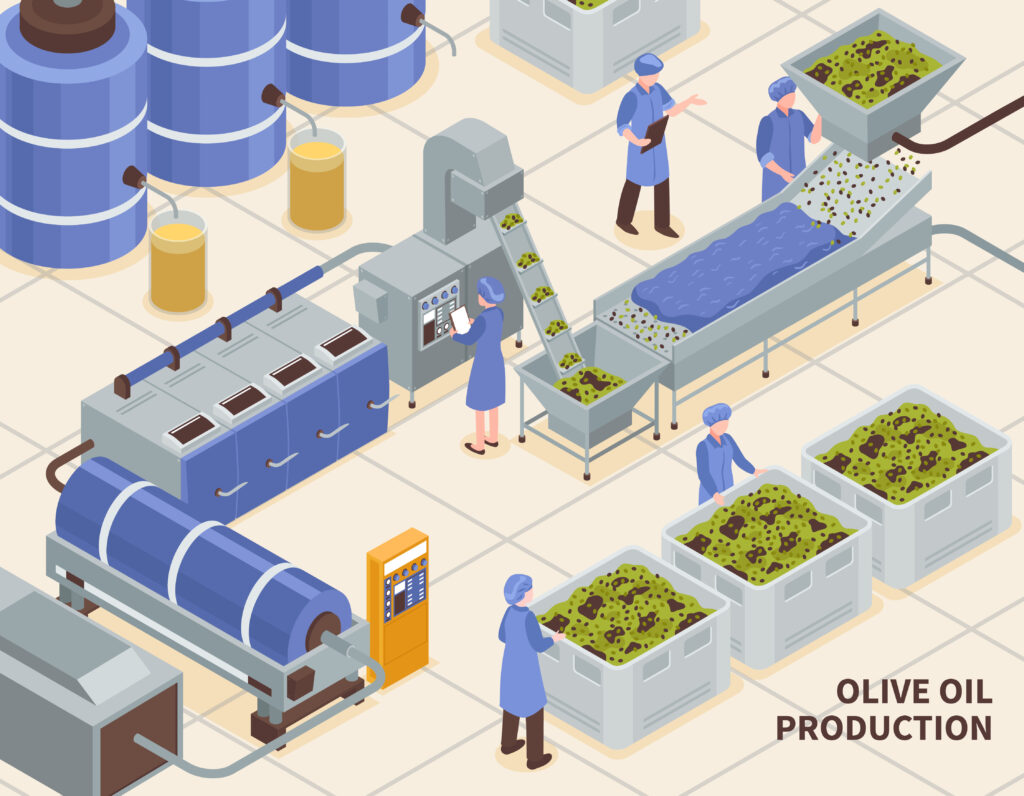The agro-processing business is critical to Nigeria’s economy. It entails adding value to agricultural products by processing them into completed or semi-finished commodities for both domestic and export use. Agro-processing enhances raw agricultural products while additionally creating employment, improving food security, and contributing to economic development.
While Nigeria has enormous potential in agro-processing, the sector has not yet arrived at its maximum potential. Notwithstanding, with the right investments, agro-processing in Nigeria can turn into a huge supporter of the country’s economic development.
This article analyzes the agro-processing investment possibilities in Nigeria as well as the challenges related to doing as such, as well as effective contextual analyses and reactions to these issues. Investors searching for chances in Nigeria’s agro-processing sector would find this article to be helpful.
Investment potential in agro-processing in Nigeria
Nigeria has enormous Agricultural potential that is yet to be realized. The nation is abundant in natural resources and has a vast population that is growing more conscious of the need for good eating habits. This growth in population has increased the demand for processed food items, opening up opportunities for investment in the agro-processing business.
This section will look at the investment opportunities in agro-processing in Nigeria. We will identify Nigeria’s primary crops and describe the agro-processing prospects for each. We will also assess each agro-processing opportunity’s potential profitability and expansion.
A brief overview of Nigeria’s agriculture industry
The Nigerian Agricultural industry is one of the biggest sectors of the Nigerian economy, accounting for more than 20% of the country’s GDP. Nigeria is enriched with varieties of crops, including oil palm, cassava, cocoa, maize, rice, and sorghum.
Identification of Nigeria’s primary crops
Palm oil
Palm Oil is an important cash crop in Nigeria, being the world’s fifth-largest producer of palm oil worldwide. Palm Oil agro-processing options include producing palm oil, palm kernel oil, and palm kernel cake.
Cassava
Cassava is another important crop in Nigeria, with Nigeria being the world’s biggest producer. Cassava processing options include the manufacture of garri, starch, flour, and ethanol.
Cocoa
Cocoa is an important cash crop in Nigeria, with Nigeria ranking fourth in the production of cocoa worldwide. Cocoa processing options include the production of cocoa powder, cocoa butter, and chocolate.
Maize
Maize is a primary food crop in Nigeria, and the nation is Africa’s biggest producer of maize. Maize agro-processing prospects include the production of maize flour, cornmeal, and animal feed.
Rice
Rice is another main food crop in Nigeria, with Nigeria producing the most rice in West Africa. Rice processing prospects include the production of rice flour, parboiled rice, and rice bran oil.
Describing the agro-processing prospects for each main crop.
Palm oil
Nigeria has enormous agro-processing prospects for palm oil. Palm oil production is the most prevalent kind of agro-processing for palm oil. Palm oil is used to produce items such as food, cosmetics, and biodiesel. Profitable ventures include the manufacturing of palm kernel oil and palm kernel cake. Palm kernel oil is used to make soap, margarine, and cooking oil, while palm kernel cake is used to feed animals.
Cassava
Cassava has a wide range of agro-processing options. Garri is a famous cassava-based culinary product commonly eaten in Nigeria and other West African nations. Cassava starch is used to make fabrics, paper, and adhesives, among other things. Cassava flour is also used to make bread goods, noodles, and snacks. Another agro-processing possibility for cassava is ethanol, which is used as a biofuel.
Cocoa
In Nigeria, there are several agro-processing options for cocoa. Cocoa powder is used to make chocolate, while cocoa butter is used to make cosmetics and medications. Chocolate manufacturing is another feasible agro-processing option for cocoa.
Maize
The most prevalent kinds of maize agro-processing include the manufacture of maize flour, cornmeal, and animal feed. Maize flour is used in making bread, noodles, and snacks. Cornmeal is used to make porridge, bread, and tortillas. Another significant agro-processing possibility for maize is animal feed.
Rice
Rice agro-processing prospects abound in Nigeria. Rice flour manufacture is a popular kind of rice agro-processing. Rice flour is used to produce bread items, noodles, and snacks. Another agro-processing option for rice is parboiled rice. Parboiling is the process of soaking rice in water and then steaming it to boost its nutritional content and shelf life. Rice bran oil is another lucrative rice agro-processing possibility. Rice bran oil is a nutritious cooking oil derived from the outer layer of the rice grain.
Evaluation of each agro-processing opportunity’s potential profitability and expansion.
The agro-processing options highlighted for each major crop in Nigeria offer tremendous profit and expansion potential. For example, palm oil output in Nigeria has a potential market size of more than $4 billion, with considerable future expansion. Garri made from cassava has a market value of more than $1 billion in Nigeria alone, with the potential to expand into other West African nations. Cocoa powder and cocoa butter manufacturing also offers substantial profit and development potential, with the worldwide chocolate industry predicted to reach $139 billion by 2024.
Challenges to agro-processing investment in Nigeria

Nigeria’s agro-processing sector presents a few investment opportunities because of its enormous farming assets and developing interest in processed food products. However, investing in agro-processing likewise accompanies a few difficulties. In this section, we will discuss the difficulties investors face while investing in Nigeria’s agro-processing sector, break down government policies and guidelines that influence agro-processing investment, and make sense of how these difficulties can be tended to.
Common difficulties encountered by investors while investing in Nigeria’s agro-processing industry
Lack of infrastructure: A lack of suitable infrastructure, such as reliable roads, energy, and water supply, might stymie the expansion of agro-processing enterprises. Transportation expenses for raw supplies and completed goods might become prohibitively expensive, rendering the company unprofitable.
Lack of access to finance: Access to finance is critical to beginning or growing any business, and agro-processing is no different. Nigerian banks have been hesitant to loan to agro-processing firms because of the discernment that it is a high-risk adventure. This absence of access to finance makes it challenging for business people to begin or grow agro-processing organizations.
Inconsistent government policies: The Nigerian government has been reprimanded for executing conflicting policies that influence the development of the agro-processing sector. This irregularity has prompted vulnerability among investors, prompting a hesitance to invest in agro-processing.
Poor storage facilities: Nigeria’s agro-processing sector is defenseless against post-harvest losses due to lacking storage spaces. Inadequate storage spaces can cause waste of natural substances and completed products, prompting a loss of finance for the investor.
Government policies and regulations affecting agricultural processing investment
Import policies: The Nigerian government has enacted several import rules to preserve the local industry. High import taxes, import bans, and limits on the import of certain items are examples of these policies. While these rules attempt to boost local production, they may restrict raw material availability for agro-processing firms.
Taxation rules: Nigeria’s taxation regulations may be complex and constantly change, making it difficult for investors to plan their investments. Tax rates might be high and unpredictable, deterring prospective investors from joining the industry.
Land acquisition: Land purchase might be a substantial barrier for agro-processing investors. Land titles are often unclear, and land conflicts are widespread. These difficulties might cause delays and increased expenditures for the investor.
Addressing obstacles to agro-processing investment in Nigeria
Collaboration with the government: Investors can work with the government to alleviate some issues in the agro-processing business. The government may fund infrastructure such as roads, power, and storage facilities. To stimulate investment in the industry, the government may also grant tax breaks.
Access to finance: The government can implement laws that encourage banks to lend to agricultural processing companies. Investors might also look into alternative financing options, such as venture capital, to help fund their ideas.
Improving storage facilities: To prevent post-harvest losses, investors can invest in their storage facilities. They may also work with the government to create storage facilities in their regions of operation.
Undertake due diligence: Investors should undertake due diligence before investing in the industry. Due diligence should involve an examination of government policies and laws that may have an influence on the industry, market research, and an awareness of the difficulties associated with operating in the sector.
Conclusion
In conclusion, the agro-processing industry in Nigeria possesses a large investment potential. The crops grown in Nigeria can be turned into a wide range of value-added goods, including food, feed, and fuel. Nigeria’s population is expanding, and so is the need for processed Agricultural goods. Investors now have the chance to take advantage of a developing market and support the growth of the Nigerian economy.
However, there are risks involved with agro-processing investments in Nigeria. Investors must be ready to deal with the difficulties in the Nigerian economic climate, including erratic government policies, substandard infrastructure, and limited access to financing. Investors can, nevertheless, make a profit in Nigeria’s agro-processing business with careful preparation, ethical investing methods, and a desire to work with regional partners.
Potential investors may get ideas from successful agro-processing projects in Nigeria to improve their chances of success. For instance, the Nigerian poultry and animal feed industries received a $150 million investment from Singapore’s Olam International in 2020. The goal of making this investment was to construct an integrated chicken and feed business that would benefit smallholder farmers, increase food security in Nigeria, and generate employment. Such investments support Nigeria’s sustained economic growth and provide investors with profits.
Furthermore, Nigeria offers a lucrative investment opportunity in agro-processing. Investors that endeavor to comprehend the industry, its potential, and its difficulties stand to benefit significantly while also advancing Nigeria’s economy. Investors can have a good influence on Nigeria’s agro-processing industry by using ethical investing methods, creative business models, and a desire to work with regional partners.
We hope this article is instructive and helpful as you make investing decisions. Please feel free to contact us if you have any queries or want to learn more about the agro-processing investment prospects in Nigeria.












